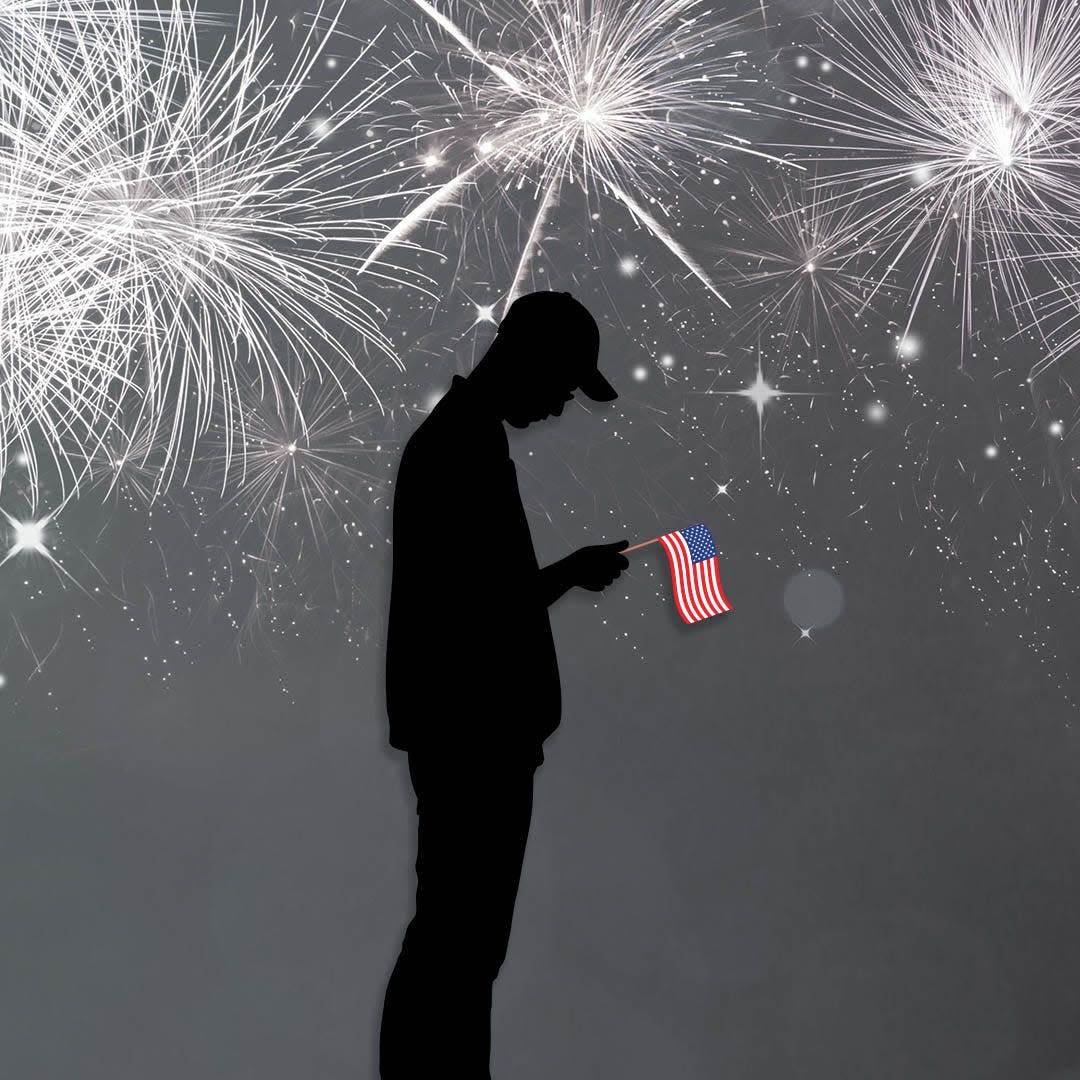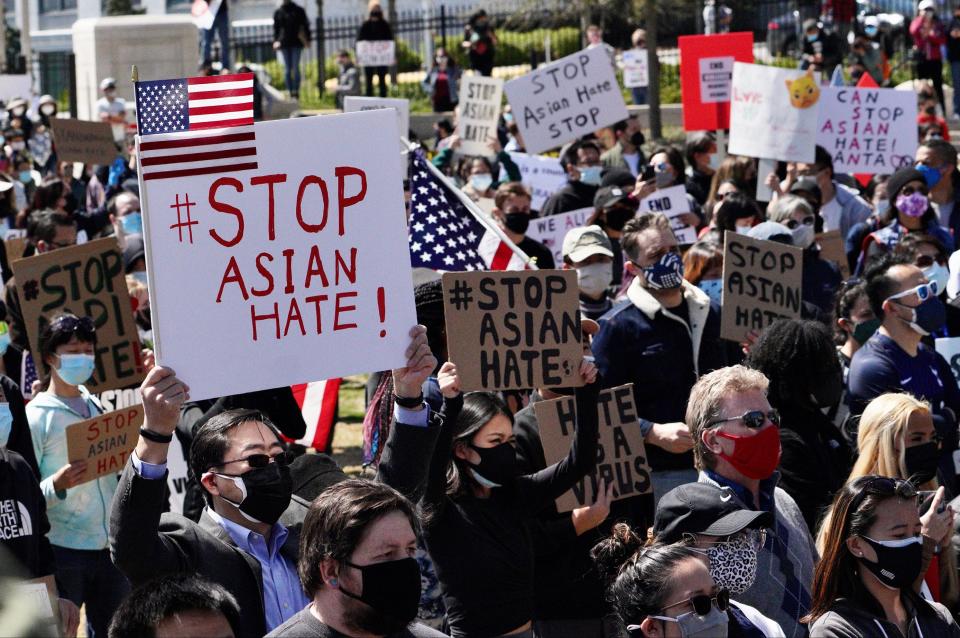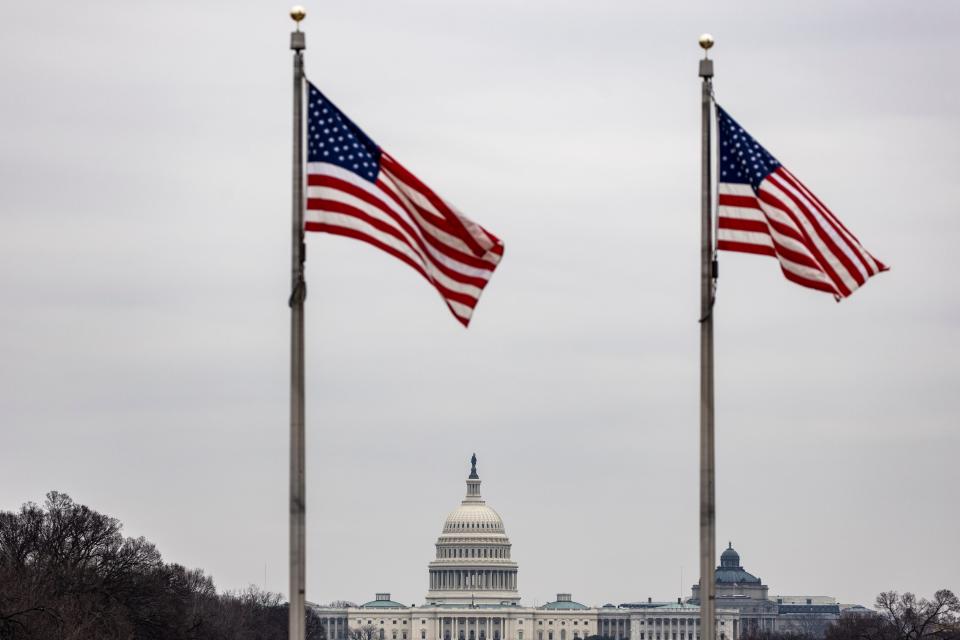Are you ambivalent about celebrating July 4? You’re not alone.

- Oops!Something went wrong.Please try again later.
Editor's note: This story was originally published in 2021. We are resurfacing it for July 4, 2022.
Ah, yes, the Fourth of July. Fireworks, friends and food, right?
For many, absolutely. For others, not so much.
It's common for marginalized U.S. citizens to question reveling in Fourth of July festivities, according to Fordham University critical race theory law professor Tanya K. Hernández.
After someone spat on him at an airport last March, tech executive Jeff Le is less than inclined to go out and celebrate.
"I'm honestly pretty nervous about the Fourth," Le says. "It was my favorite holiday but with Asian hate, I've been feeling less interested in engaging at night in public places."
Independence Day doesn't ring true for all Americans who have felt unwelcome in the U.S. or jaded by its politics, though experts say there is room for personal growth in such discomfort.
"Ambivalence can be a very productive space for pursuing much needed change," Hernández says.
Great list: What kids should be reading for AAPI Heritage Month and why representation matters
Why people feel unpatriotic
A lack of patriotism surrounding July 4 isn't new. This land hasn't always been o'er the free, after all.
Hernández invoked abolitionist Frederick Douglass' 1852 speech "What to the Slave is the Fourth of July?" while ruminating on the subject. "The rich inheritance of justice, liberty, prosperity and independence, bequeathed by your fathers, is shared by you, not by me," Douglass said.
"It is disconcerting how many of Douglass's concerns with social and civic exclusion still exist long after the abolition of slavery," Hernández says.

Worth the watch: Larry Wilmore chats Netflix documentary series 'Amend' and 'beautiful' Mahershala Ali performance
Last year, only months into the coronavirus pandemic and nationwide reckoning on racial justice, a Gallup poll found that the number of U.S. adults saying they are "extremely" or "very" proud to be American hit a 20-year low. Republicans were more likely to be "extremely" proud Americans compared to Democrats.
Le, who comes from a family of immigrants, says when you leave your home country and flee as a refugee, you appreciate the country that takes you in. But what if that country turns on you?
"What's been hard is the freedom that we've had has changed, at least for me, and maybe some other members of my community where as people are emerging back in the post-pandemic world, folks are now easier targets," Le says.
In case you missed: Amid protests and a pandemic, what does it mean to be American in 2020?
Members of the Asian-American Pacific Islander community still feel scapegoated and blamed for the pandemic, according to Le. Hate incidents have skyrocketed despite increased public awareness; President Joe Biden signed legislation to thwart hate crimes.
"When you hear about friends whose small businesses are continuing to be vandalized, when you hear about acquaintances that have been harassed on public buses, when you hear about friends' kids who are too scared to go to school, because they're being bullied ... It's clearly a large-scale feeling of not feeling welcome, and not feeling like you belong here, or you're a part of this problem," Le says.
What to do if you’re feeling unpatriotic
First up: Know you're not alone.
Psychologist Miranda Nadeau works with women, LGBTQ+, people of color, immigrants and children of immigrant patient populations – all likely to have experienced systemic oppression and may pause before praising July 4.
"As the nationwide dialogue advances around how to approach equity work, many people who fit one of those criteria are finding it increasingly hard to wave the stars and stripes, and patriotism in others is increasingly viewed with skepticism," Nadeau says.
It's OK to not celebrate. But maybe there's room to meet in a semi-patriotic middle.

Compromising is your friend. Debra Kissen, CEO of cognitive behavioral therapy treatment centers Light on Anxiety, suggests making room for social justice while also taking time for happiness. "Whatever social justice actions you want to take, engage in those behaviors and create the change you want and still find ways to weave in joy within the culture that you do live in."
Make a decision and own it. "It's fine to just say I'm going to skip Fourth of July festivities, whatever that means to me and just treat it like another day, I'm just not feeling patriotic this year," Kissen says. "Then own that."
Recognize there is no perfect solution. "In life, there isn't going to be a perfect solution. But we pick one that feels good enough for the moment that we're in, and then just proceeding forward and owning that decision," Kissen says.
Take time to reflect. "The best way to celebrate the holiday is the same way Frederick Douglass did – by using it as a day for honest reflection on how best to have 'the rich inheritance of justice, liberty, prosperity and independence, bequeathed (by our forebearers)' extended to us all," Hernández says.
Write down your feelings and plans for the day. "I might help a second-generation American client in creating a gratitude list that focuses on the special meaning that the U.S. has to them and their family – while also helping the client develop a plan for antiracist, anti-oppressive, and/or anti-colonial action on July 4 and beyond," Nadeau says. "With another client, who enjoys the barbecues and fireworks but struggles with patriotism, we might work together to plan a celebration of summer, or of rest, or of friendship – something with meaning for them."
Find perspective. Living in America grants people certain freedoms not found elsewhere, and perhaps is something to celebrate after all. "While folks reckon with the country’s past and present – and strive to all do better –there is much to be grateful for about the privileges that we have just being here," Nadeau says.
Did you see? It’s time to cancel 'cancel culture.' Call it 'accountability culture' instead.
This article originally appeared on USA TODAY: 4th of July: What to do if you're not feeling proud to be American

